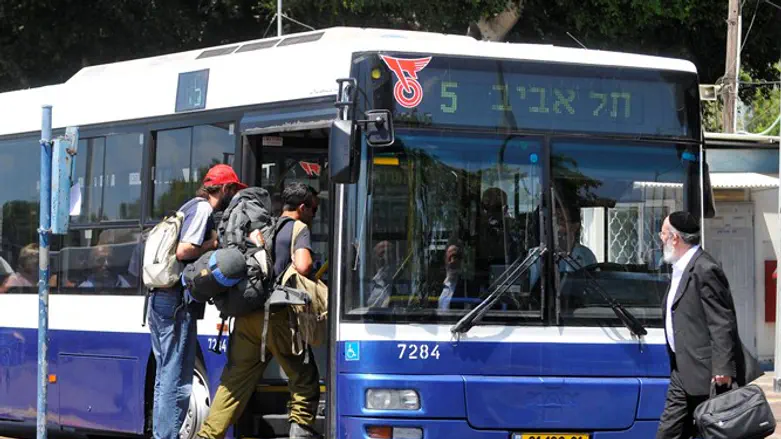
The haredi parties are planning to promote a law that will strengthen the status quo with regards to public transportation on Shabbat and would prevent local authorities from breaking the procedure that has existed in the country in this regard until now.
The move comes in the wake of an ongoing public campaign to apply public transportation during Shabbat.
During a meeting held on Monday with Transportation Minister Yisrael Katz (Likud), Interior Minister Aryeh Deri (Shas) and Health Minister Ya'akov Litzman (United Torah Judaism) said that they intended to promote the law. Katz, for his part, did not object and said that he would allow the promotion.
The issue of public transportation on Shabbat returned to the forefront recently after the city of Herzliya announced that it plans to subsidize free private shuttles on Shabbat and Jewish holidays.
The project was launched as a pilot for six months and will continue afterwards in accordance with demand.
The Chief Rabbi of Herzliya, Rabbi Yitzhak Jakubowicz, made clear following the announcement by Herzliya Mayor Moshe Fadlon that he intends to wage war against the initiative.
It should be noted that Herzliya is not the only city in which a private transportation service operates on Shabbat and holidays. Jerusalem offers a similar service, as do Tel Aviv, Givatayim and Ramat Gan.
Government-funded public transportation on Shabbat, however, is a different story. In 2014, a bill proposed by Meretz mandating the operation of public transportation in Israel on the Sabbath failed to advance in the Ministerial Committee for Legislation.
The only city in Israel where limited public transportation is available on Shabbat is Haifa, going back to the period before the establishment of the State of Israel, when buses ran in the city on Shabbat due to its being a mixed city of Arab and Jews.
This situation has remained due to the “status quo agreement”, a political understanding between religious and secular political parties not to alter the communal arrangement in relation to religious matters in a predominantly secular population.